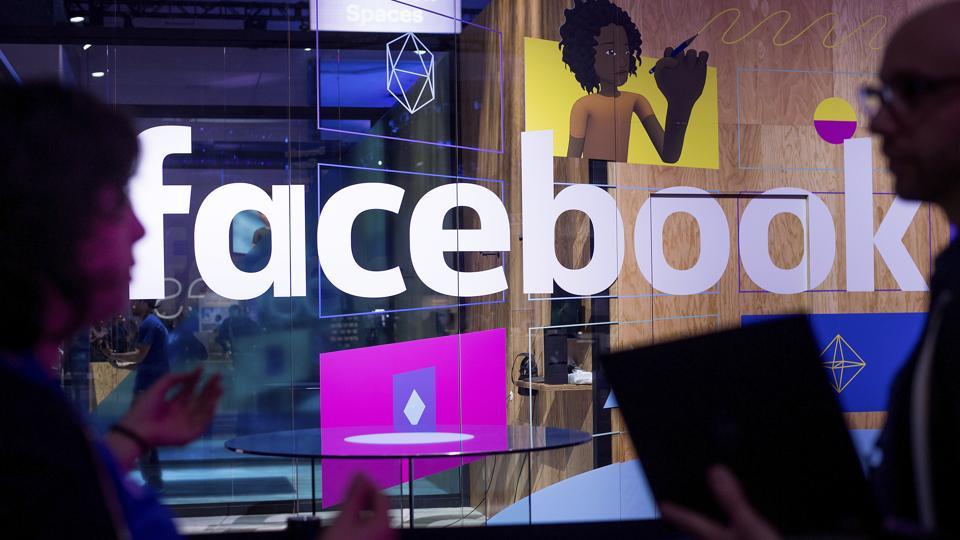Is Facebook too powerful without legal safeguards?
The absence of a data protection law and a competition watchdog to oversee Internet companies are key shortcomings, according to some experts.

It's time India moves to put in place legal safeguards to contain the potential harm that Internet giants like Facebook Inc. can cause, experts say, amid a raging scandal over access gained by political marketing firm Cambridge Analytica to user data on the social media network. India is a key market for Facebook with 217 million people using the platform every month.
Concerns centre around protection of user privacy and freedom of speech, harassment by Internet trolls, spread of misinformation and fake news, said Apar Gupta, a Delhi-based lawyer who is part of Save The Internet , a group of individuals and non-government organisations fighting to preserve net neutrality. It's time to take stock of the concerns and the sufficiency of India's legal framework to address them, Gupta said.
"Companies like Facebook have grown too big and too powerful without adequate legal safeguards," he said.
On Thursday, Facebook founder and CEO Mark Zuckerberg pledged to stop the misuse of user data on its site to manipulate voters in India,Brazil and the US. The social media network is under scrutiny after a whistleblower alleged that London-based Cambridge Analytica accessed user data to prepare voter profiles that helped Donald Trump win the US presidential election in 2016.
Information technology and law minister Ravi Shankar Prasad on Wednesday warned social media platforms such as Facebook of "stringent action" in case of any attempt to sway the country's electoral process. The government is considering a new regulatory framework for online content, including on social media and websites, Union minister for information and broadcasting Smriti Irani said on 17 March at the News18 Rising India Summit , conceding that the law is not clear about online news and broadcast content.
"We remain strongly committed to protecting people's information. We have announced that we are planning to introduce improvements to our settings and give people more prominent controls ," an India-based Facebook spokesperson said in response to an emailed query from Hindustan Times ." We have a lot of work to do to regain people's trust and are working hard to tackle past abuse, prevent future abuse and will continue to engage with the Election Commission of India and relevant stakeholders to answer any questions they may have."
The absence of a data protection law and a competition watchdog to oversee Internet companies are key shortcomings, said Sunil Abraham, founder of the think tank Centre for Internet and Society.
"Evil is a function of power. As internet giants get bigger and bigger, they'll become more and more evil. In fact, in jurisdictions like India, where we don't have a data protection law and a sufficiently agile competition commission to take on these Internet giants, they can do whatever they want to..," said Abraham.
Internet networks have helped undermine the business model for real news and replace it with a vibrant fake news model, in the process cornering the lion's share of the digital advertising revenue, said Abraham . Facebook and Google dominate the ₹9,490 crore digital advertising market in India.
"Since they don't see themselves as a media company, their primary objective is to maximize the amount of time their users spend on the platform," he said, adding that social media networks aren't concerned whether the content they present is the truth or lies
"It would be laziness on our part to just blame Facebook and then feel morally superior. We have to regulate them using competition law and a data protection law so that they behave themselves on our jurisdiction," Abraham said.
The legal framework for Indian social media users is limited. Section 43 (A) of the IT Act operates merely as a data security law applicable only to someone whose privacy has been infringed and can demonstrate that he/she has suffered a financial loss in the process.
"Whatever is known from the Cambridge Analytica episode is that none of the users have lost money or property but democracy has been undermined. So we cannot use the IT Act in India to save our democracy," he said.
Facebook operates in an opaque manner in the manner in which it regulates content, said Geeta Seshu, consulting editor for media website The Hoot.
"When complaints are launched, they are upheld if they meet Facebook's so-called community standards. Often users who are dissenting voices against hate or discrimination or misogyny have found themselves blocked. The process to appeal back to Facebook is very arbitrary. Users spend months and years being blocked on the platform. Facebook manipulates user data, when it decides to use algorithms to push content or boost certain articles for a certain sum of money," she added.
In December, Alex Hardiman, head of news products at Facebook, said restoring trust and credibility to news on Facebook is one of the biggest priorities for the company.
"There is a lot that we are doing to make sure that we eradicate any false news or misinformation on Facebook. We've found that false news is actually a very small percentage of content. But there were a lot of financial motivations for posting false news," she said in an interview to Mint when he was in Delhi to attend the Hindustan Times Leadership Summit. "So, one of the first things we have done is remove any financial incentives. We have also done a lot to make sure we can quickly identify and remove fake accounts. Also, we have been doing a lot to better understand clickbait content and train classifiers to identify and downlink it.We have also started third-party fact-checking. We have partnered with third-party organizations in the US, France, Germany and a few other countries," said Hardiman.
Catch all the Latest Tech News, Mobile News, Laptop News, Gaming news, Wearables News , How To News, also keep up with us on Whatsapp channel,Twitter, Facebook, Google News, and Instagram. For our latest videos, subscribe to our YouTube channel.


























